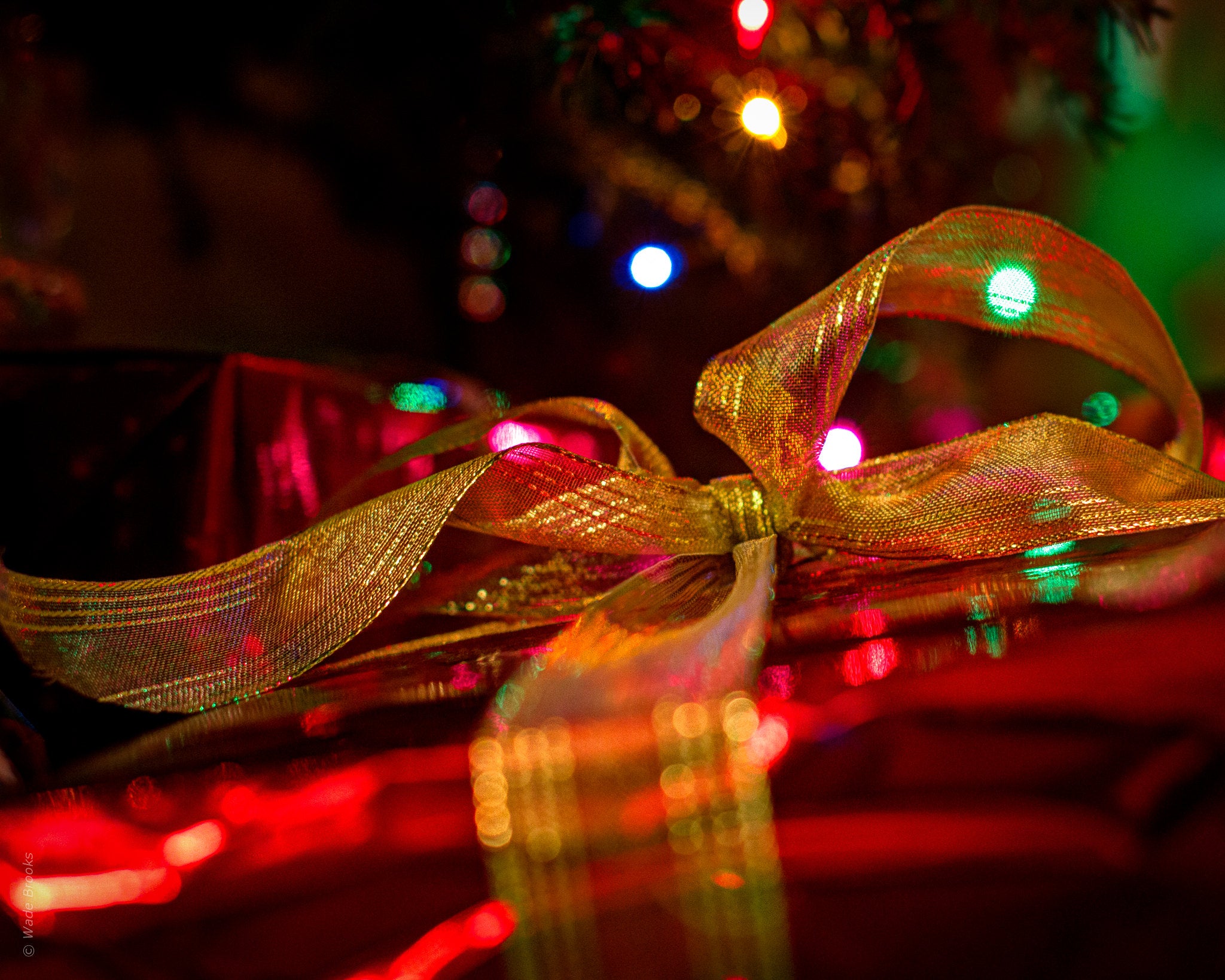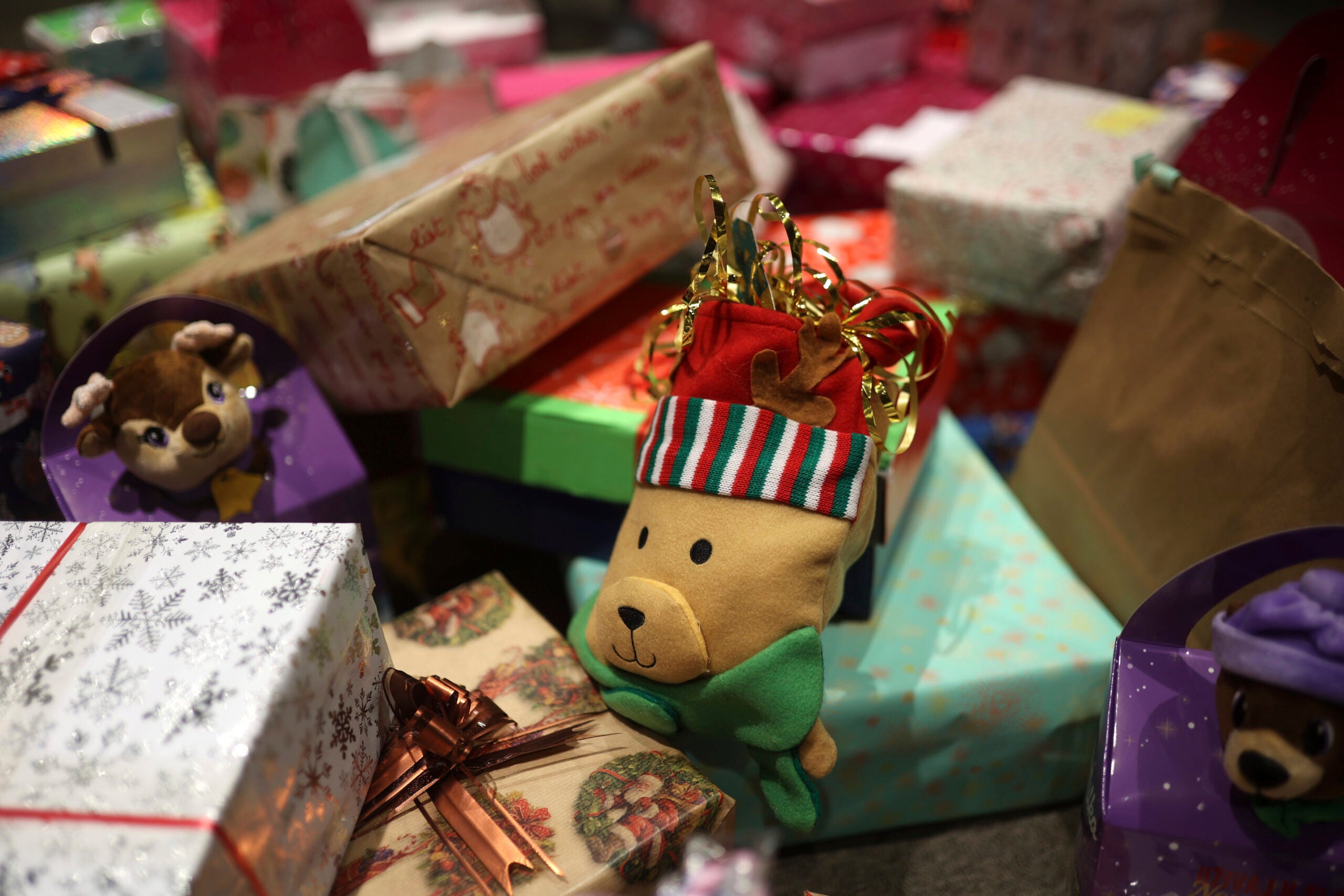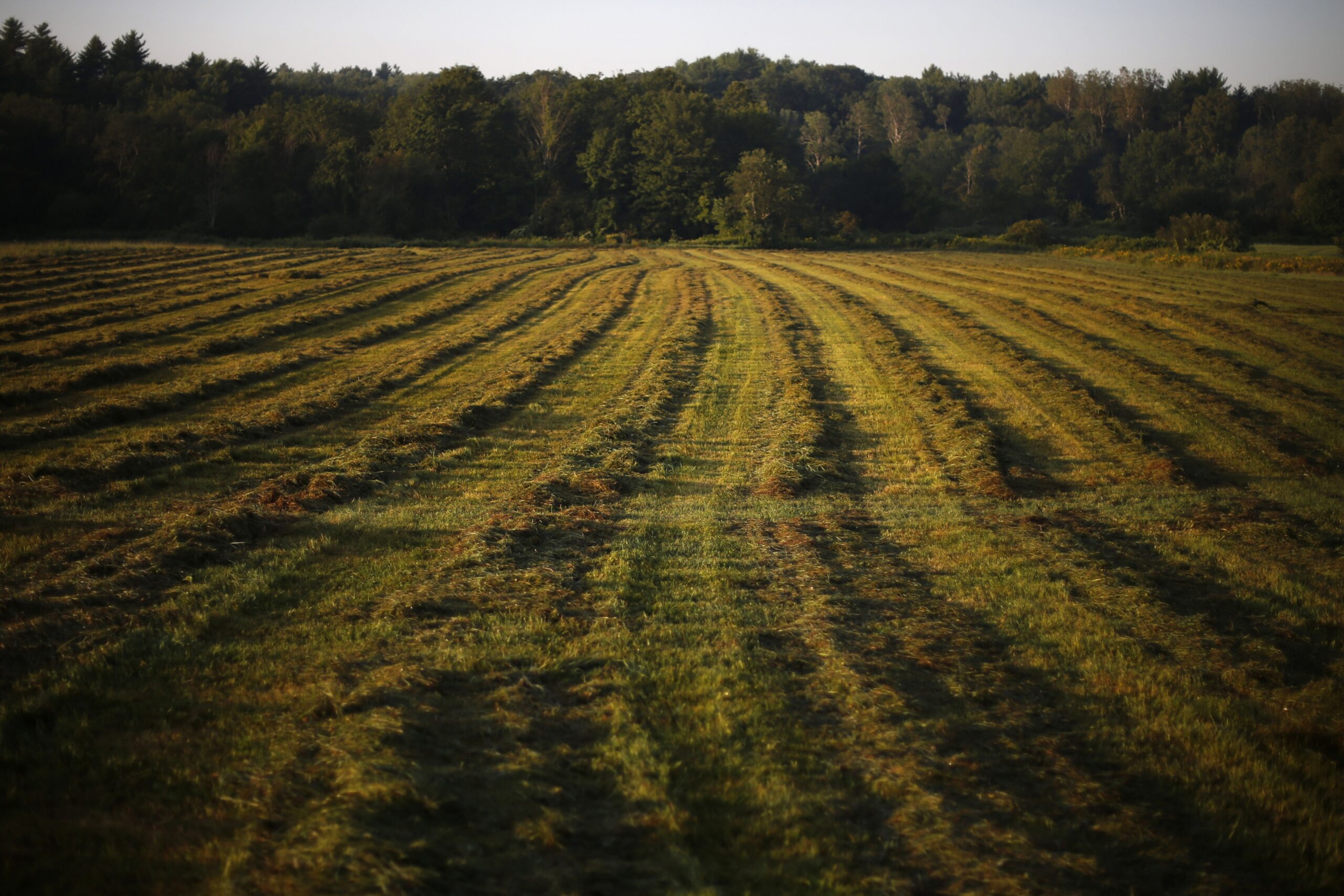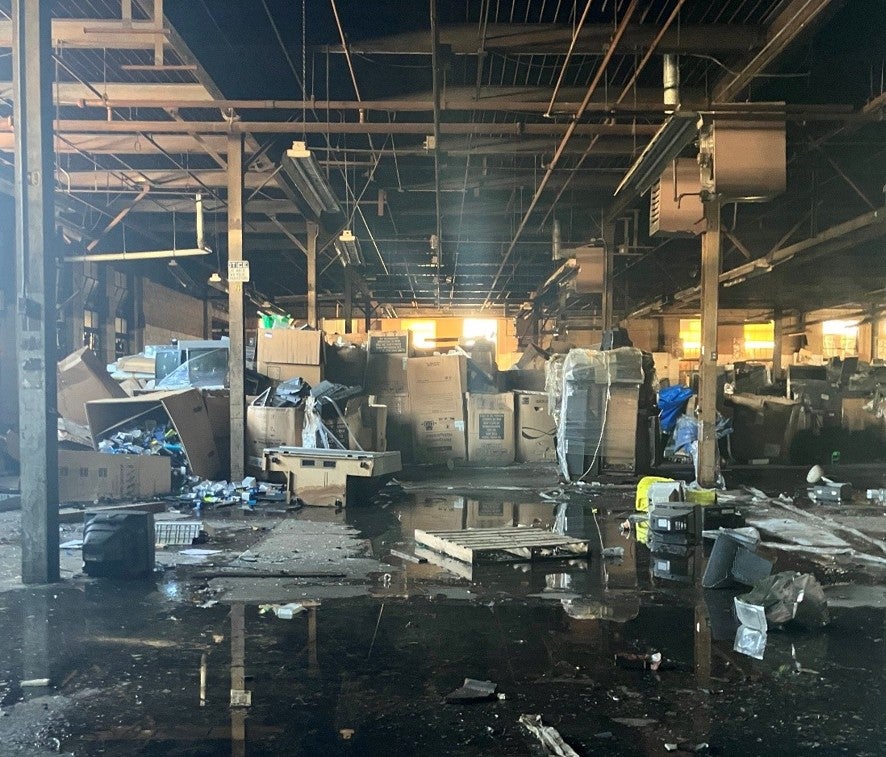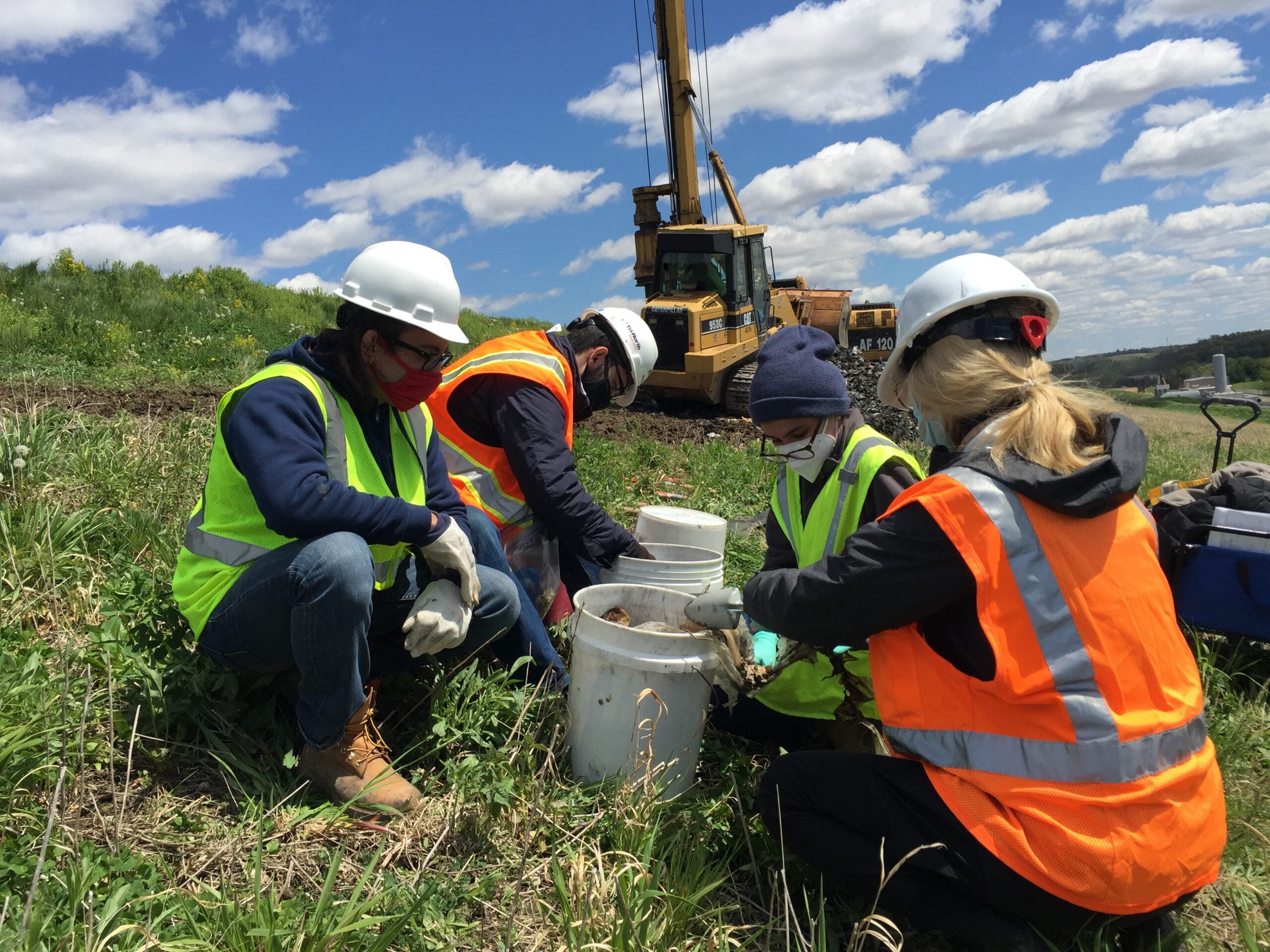When families and friends gather this season for holiday celebrations, they’re often left not just with happy memories, but with mountains of leftover food and discarded gift packaging.
The Wisconsin Department of Natural Resources provided tips for people during a virtual news conference on what can be recycled and items that are best left for the trash bin ranging from food waste to wrapping paper.
How to handle food waste this season
News with a little more humanity
WPR’s “Wisconsin Today” newsletter keeps you connected to the state you love without feeling overwhelmed. No paywall. No agenda. No corporate filter.
The average American household throws away around one third of all the food they purchase, according to a 2020 study from Penn State. The total cost of food that’s wasted amounts to around $240 billion, or $1,866 per household. Holiday gatherings can make it difficult to know how much food to prepare and what will go to waste.
In Wisconsin, a DNR study released last year found food waste accounts for around one-fifth of all the garbage that’s bound for the landfill. In 2020, those items added up to around 615,500 tons of wasted food and 238,500 tons of scraps — that’s equivalent to greenhouse gas emissions from 592,035 vehicles.
DNR Solid Waste Coordinator Casey Lamensky said the vast majority of that waste is edible food, noting households are the largest contributor.

“While food waste may not seem like the most concerning item to put in the landfill, landfills are designed specifically to push out air and oxygen, meaning that food waste that breaks down in the landfill generates methane — a greenhouse gas that’s 28 times more powerful than carbon dioxide,” Lamensky said.
Nationwide, Lamensky said food waste generates carbon dioxide emissions that’s equivalent to running 42 coal-fired power plants each year.
The DNR is recommending several tips to help the environment and save money this season. They include:
- Seek out ingredient substitution ideas to limit waste.
- Know expiration dates may not mean food has gone bad — except for infant formula.
- Shop with a list and using online tools to estimate food needed.
- Store food or send items home with guests.
Holiday items that can be recycled
After filling up on figgy pudding or that favorite holiday dish, people may gather to exchange gifts. What should you do with the wrapping paper, holiday bags or cardboard boxes? The DNR provides several recommendations for recycling those items.
Wrapping paper that isn’t foil or lacks glitter can generally be recycled, according to DNR Waste Reduction and Diversion Coordinator Jennifer Semrau. The agency advises against including any ribbons or bows with wrapping paper, as well as avoid crumpling paper into a ball.
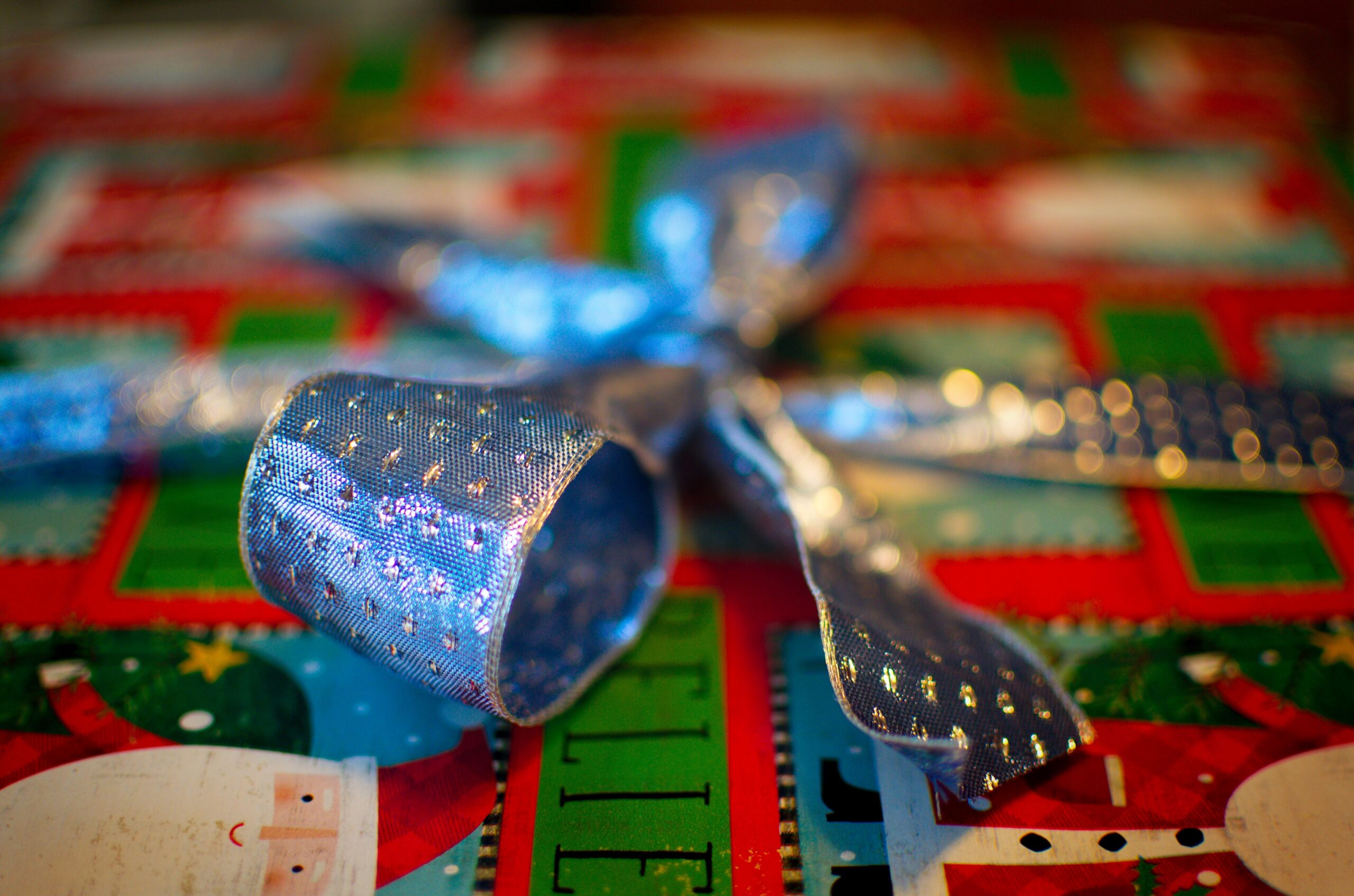
“Paper should be flat, so a ball of paper may not be sorted properly at the recycling facility,” Semrau said.
Regarding gift bags, the DNR urges people to reuse them next year. Paper bags can be recycled, but people should remove ribbons, straps and any tissue paper. Greeting cards can also be recycled as long as they don’t have glitter, sequins, or batteries.
Other items that can be recycled anytime include:
- Cardboard (flattened)
- Newspaper
- Magazines
- Office paper
- Plastic #1 and #2 containers
- Aluminum cans (not crushed)
- Steel (tin) cans (rinsed)
- Glass bottles and jars (rinsed)
Holiday items that shouldn’t be recycled
The DNR said holiday lights and cords should not be recycled unless otherwise noted.
“Because when it gets to the facility, it’s very easy for a light string to get wrapped up into equipment,” DNR E-Cycle Wisconsin Coordinator Sarah Murray said.
The agency encourages people to check for special drop-off sites for holiday lights like a retailer, scrapyard or community event.

The DNR also advises against recycling:
- Plastic bags
- Plastic film
- Plastic wrap
- Batteries
- Electronics
- Plastic forks, spoons, and knives
- Styrofoam packaging
- Packing peanuts
“The problem is that batteries, if damaged, can easily spark and cause serious fires, especially the lithium-ion batteries that power a lot of our electronics today,” Murray said. “So what you want to do with those is take them to a drop-off point or use a free manufacturer mail-back program.”
The DNR also provides a list on its website of types of plastic bags and wrap that can be recycled, as well as drop-off locations. Otherwise, throwing those items in the trash may be the best option.
Wisconsin Public Radio, © Copyright 2025, Board of Regents of the University of Wisconsin System and Wisconsin Educational Communications Board.

